
29 minute read
Who Will Raise Your Children if You Die Without a Will?

Rev. Motseko R. Potse, pastor of Bethel AME Church, Munsieville. This was followed by a statement of encouragement by the Rev. Sol Maans, presiding elder of the Wilberforce District. The ANC Women’s League would not be left out as they intermittently kept shouting, “Long live the spirit of Charlotte Maxeke, long live.”
Advertisement
The drive from SOWETO to Atteridgeville, the western township of Pretoria, known to many as Pheli, started off to be ready for a 12h30 pm worship experience at Ebenezer AME Church, pastored by the Rev. Modikoe A. Mpye. No better church could have been chosen than that which was established by Mangena Maake Mokone in Marabastad of Pretoria in 1892 and being formally opened on 5 November 1893 before being forcefully moved to Atteridgeville by the apartheid government. Mokone’s Ethiopian Church formally united with the AME Church in 1896. This unification was brought by Charlotte Maxeke who had travelled to the USA for a music career, and then ended up with a scholarship to study at the Wilberforce University. Maxeke made her uncle Mangena Mokone aware of the AME Church which shared the same ideals as his Ethiopian Church. The worship experience commenced just before 1 pm with the Rev. N.N.A. Matyumza, presiding elder of Mkhanyakude District, worship leader, and the Rev. M.A. Mexico, presiding elder of the Capital District preaching. The various speakers included, Mapula Nkomo president of the National Council of African Women, Reshoketswe Mosuwe, president of the 19th Episcopal District WMS, Stella Ndabeni-Abrahams, minister of Small Business Development – who handed out business certificates to 20 women, and Bathabile Dlamini, president of the ANC Women’s League as the guest speaker.
The presiding prelate of the 19th Episcopal District, Bishop Ronnie Elijah Brailsford, Sr., delivered his message through Presiding Elder Victor Malefetse highlighting her many achievements and the challenge that awaits all of humanity.
This whole day experience could not have ended without sharing a meal preceded by cake cutting. The cake was captioned “Maxekism” to encourage all the ideals that Charlotte Makgomo Mannya Maxeke espoused. Blessed be the name of the Lord. ❏ ❏ ❏ rch, , Sol gue t of ria, nce tter ena on heid heid rch lled udy ware The mza, M.A. kers men, ella out NC ijah etse nity. meal the e of
























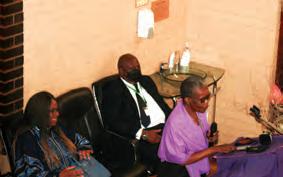

By Mr. Benjamin Edwards, 5th Episcopal District

If you are a parent of unmarried children under age 18 (minors), ask yourself, “Suppose tomorrow I die; who will raise them in my absence?” You may not want to think about that scenario, but it is real life.
While most parents live long enough to raise their children to adulthood, a few are not so fortunate due to a fatal illness or accident. But because no one knows what tomorrow holds, preparing for death could spare your family and loved ones undue emotional and financial hardship and conflicts as they strive to manage without you; and protect your children.
As a parent, you should want to know that your children will be cared for according to your wishes if you cannot be there for them. Typically, the other parent will get custody. But a complex problem arises if they are adjudicated unfit, are deceased, cannot be found, or do not want the responsibility. For those reasons, having a “Will” is essential. It is how you can protect them. In its absence, a court will determine who has custody.
Creating the legal document is not something on the forefront of most Americans’ minds, considering that seven (7) out of eight (8) die annually without one. Accordingly, many parents have died unexpectedly before making a legally binding plan for their children.
A will is critical if you have minor children. It can give you more control over who raises them if something happens to you by allowing you to nominate a guardian. Typically, they are a family member. However, they do not necessarily need to be a blood relative. But regardless of the relationship, ask yourself: • Do they share my personal and religious beliefs and values? • Do they have a relationship with my children? • Are they able to provide a stable and safe
environment for my children? • Are they physically and psychologically capable of parenting? • Are they interested in being a guardian?
If the court approves, your nominee(s) will become substitute parent(s). They will have legal custody of your children and be responsible for their food, housing, health care, education, clothing, etc.
In addition to a physical guardian, you should also nominate a financial guardian (or conservator) since children under 18 cannot legally inherit money or property. They can be the same or a different person and will be in control of your children’s assets until they become adults.
Many parents fail to take advantage of these opportunities. They leave crucial decisions about their children’s future solely in the hands of judges, who may get it wrong if there is no “Will” (with a nomination) to refer to. In that event, their children may be placed with someone they would not have preferred or in foster care with approximately 400,000 other children and away from family and friends they know and love.
The above is not an indictment of foster homes. They have an essential function in our society. However, they may not be suitable for your children. By investing a little time (and money) in making a “Will,” you can help avoid the abovementioned problems.
It serves no purpose to spend countless hours wondering who will raise your children if you and the other parent pass away. That time can be best spent making a list of people (i.e., family, friends, church members) you would feel comfortable raising your children and managing their property. Then move forward with creating a “Will” nominating a guardian(s). Doing such can give you peace of mind knowing that your “most precious asset(s),” who scripture refers to as “a gift from the Lord” (Psalm 127:3 NLT) will be appropriately cared for no matter what the future holds.
However, most parents (and people in general) need more than a “Will” to secure the protection they need for their minor children, assets, other loved ones, and themselves. They need a “Will or Living Trust, General Durable Power of Attorney, Medical Power of Attorney, Healthcare Directive (Living Will), and HIPAA Waiver.”
Many online do-it-yourself (DIY) forms claim to help save time and money preparing the above-essential documents. However, because the welfare of your children, assets, other loved ones, and yourself are at risk, it is prudent to have them prepared by an experienced estate planning attorney who can personalize them to fit your specific needs. Moreover, there are many issues to consider, and the one size fits all DIY forms are suspect. If the documents are not drafted correctly, they can cost a lot more in aggravation, suffering, and attorney fees later on. h d f h i i
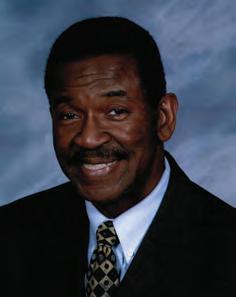
Benjamin F. Edwards is the principal at The Edwards’ Law Offices, an Estate Planning firm in Illinois and Missouri. He is a former member of the Judicial Council, a steward at St. Paul AME Church in St. Louis, MO., where Dr. Spencer Lamar Booker is the pastor, and an active member of the lay organization. For more information about his practice visit www.bfedwardslaw.com.
Disclaimer. This article is for general information purposes only. Nothing should be taken as legal advice for any individual case or situation. Reviewing or receiving this information does not create an attorney-client relationship, nor is it intended to.

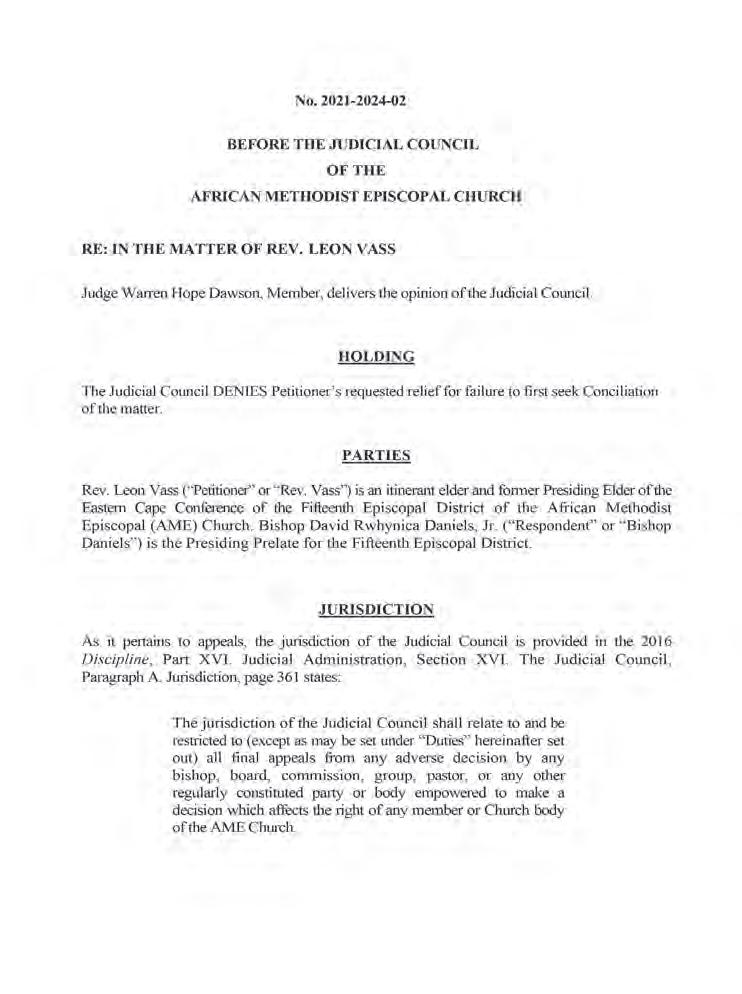

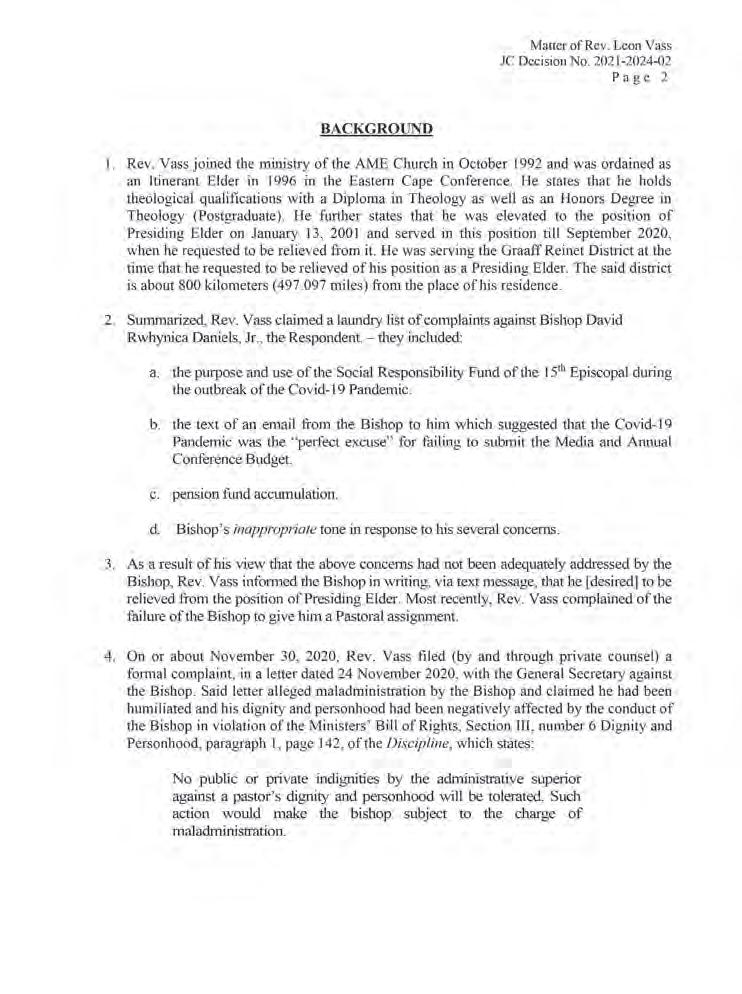

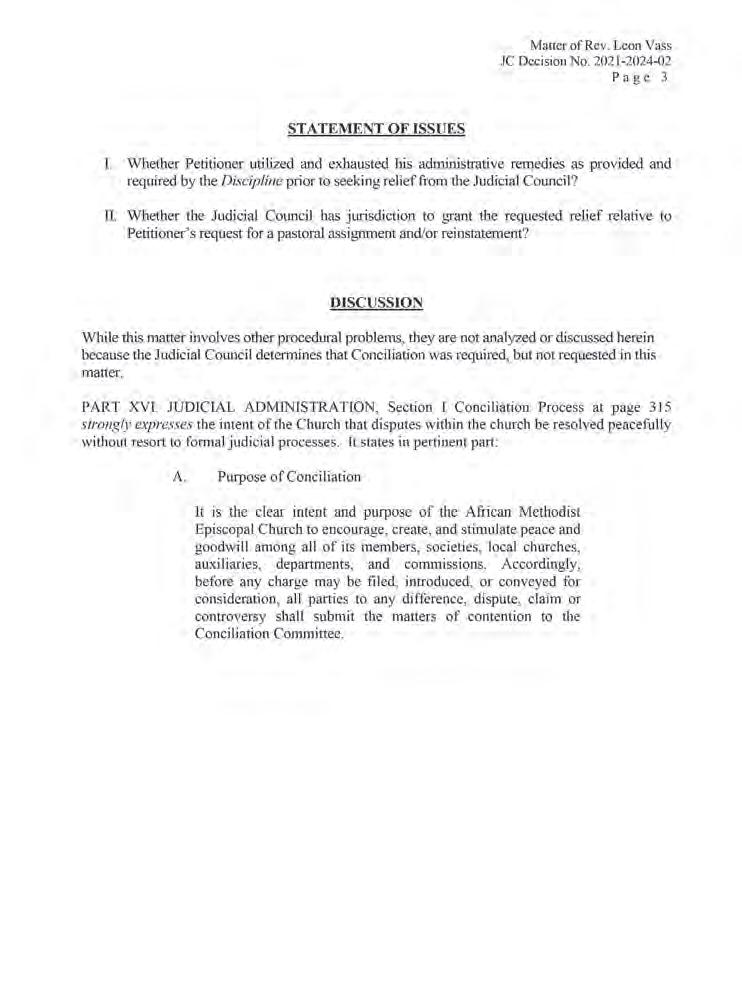

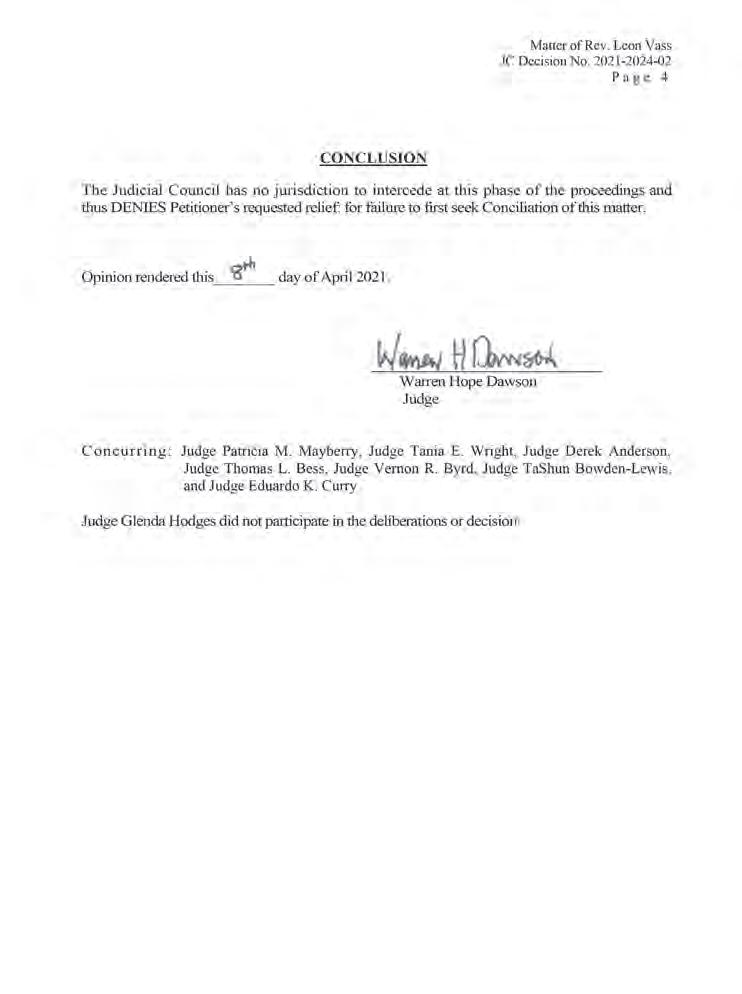
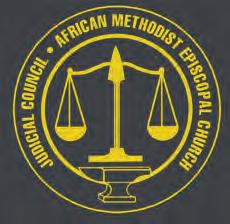
NATIONAL ASSOCIATION OF EVANGELICALS LAUNCHES RACIAL JUSTICE COLLABORATIVE
By Adelle Banks, Religion News Service
The National Association of Evangelicals (NAE) has hired a director for its new Racial Justice & Reconciliation Collaborative, an initiative aimed at providing resources and training for churches in its 40 member denominations.
Mekdes Haddis, the new initiative’s director, was hired for the full-time role a month ago after serving in church and nonprofit circles for more than a decade. She is working remotely from South Carolina for the Washington-based evangelical organization. “I’ve talked with many NAE member organization leaders and have been excited to discover a great deal of self-awareness and earnest desire for reconciliation,” she told Religion News Service. “There is a lot of synergy and commitment to the task.”
In 2020, the NAE inaugurated Walter Kim, a Korean American theologian, as its new president. At the same Washington ceremony, John K. Jenkins, Sr., the African American senior pastor of Maryland’s First Baptist Church of Glenarden, was installed as chair of the NAE and former Wesleyan Church General Superintendent Jo Anne Lyon as vice-chair.
Kim has made recent appearances at the Ethics and Public Policy’s Faith Angle Forum and the Council for Christian Colleges & Universities (CCCU) International Forum, at which he has spoken about the racial diversity of evangelicals. In an interview after his remarks at the CCCU meeting, Kim said he hopes the collaborative will help religious institutions within and beyond the NAE “that want to take a next step from ‘I’ve read this book’ or ‘I’ve seen this webinar.’” Kim also said he hopes the collaborative will offer a place of respite for the “exhaustion” and “a spiritual oasis of encouragement for people of color working in predominantly white institutions.”
In an article for Faithfully magazine four years ago, Haddis, an Ethiopian immigrant, addressed that exhausting experience, writing of her desire to “bring healing” to evangelical Christianity as she sought to preserve her cultural identity. “For those interacting with me in the United States, especially those in the church, I represented a group of people from which they isolate themselves,” she wrote in the article titled “Embracing My Otherness in the U.S. Evangelical Church.” “I discovered that I was first black, second a female, third an immigrant, and lastly (if we got there) a Christian.”
Haddis is the author of the forthcoming book A Just Mission: Laying Down Power and Embracing Mutuality.
The Lilly Endowment is providing $1 million to support the NAE’s collaborative, which comes at a time when other evangelical organizations have also attempted to work on race relations in long-term initiatives. Last year, World Vision U.S., an evangelical Christian humanitarian organization, completed what an executive there called “a one-year mutual learning journey towards a biblical understanding of what it means to pursue racial justice.”
In November, hundreds of evangelical Christians gathered at the Museum of the Bible to kick off the “Let’s Talk” initiative to listen to stories of racism and make plans to build racial unity. It has continued through monthly Zoom meetings with leaders, including Jenkins, gathering in small group discussions.
“I do think that there is a constituency of people whose hearts are open to recognizing the need to address the tension and the division that’s greatly in our country,” said Jenkins, who credited Kim with creating the NAE’s collaborative. Kim, who also is a pastor of Trinity Presbyterian Church in Charlottesville, Virginia, said in a statement that he expects NAE’s new three-year commitment will last much longer. “Of course, the NAE’s commitment to racial justice and reconciliation expresses a belief that the church should be deeply engaged in this work as a reflection of our beliefs,” he said. “As such, it will be an ongoing aspect of our work.” ❏ ❏ ❏
GOOD FRIDAY, THE GREAT RESURRECTION, AND SURPRISING HOPE IN UKRAINE AND ETHIOPIA
By Angelique Walker-Smith, Bread For the World
2 They found the stone rolled away from the tomb, 3 but when they went in, they did not fi nd the body. 4 While they were perplexed about this, suddenly two men in dazzling clothes stood beside them. Luke 24.2-4
In 33 A.D., a group of women came to the tomb of Jesus to anoint his body. After being violently assaulted, tortured, and crucified on a cross, Jesus’ broken body was laid to rest in a tomb. Many of these same women—including Mary, the mother of Jesus—beheld the brutal ordeal and sought to honor the body of Jesus and his memory.
Imagine the horror of Mary and her community witnessing such a brutal and unjust death of her son. But also imagine the awful surprise of not finding Jesus upon arriving at the tomb where he had been laid to rest.
During this year’s transitional season of Lent to Good Friday and then to the Great Resurrection, we still witness the many vivid images of violent death and the awfulness of missing persons. The daily images of Ukrainian peoples affected by the conflict that breeds this continue to haunt us. Ethiopian people, especially in Tigray, and people in places like Yemen, Nigeria, and South Sudan also experience conflict, and hunger is a result.
Did you know that 98 percent of the population of Afghanistan, affected by years of conflict, do not have enough to eat? One million children under the age of five could die from malnutrition by the end of the year. In Yemen and other places around the world, food prices have doubled. Did you also know Russia and Ukraine are responsible for 29 percent of global wheat exports—19 percent from Russia and 10 percent from Ukraine; they also produce fertilizer and fuel? The result is that our global food system is and will continue to be affected.
We are called to be bearers of surprising hope that the women experienced when they realized that Jesus’ body was not taken away at the tomb but that Jesus had risen! We see, for example, surprising hope with the Ukrainian churches providing refuge and medical aid in 10th and 11th century churches. There is surprising hope in the 120 rock-hewn churches in Ethiopia providing sanctuary. There is surprising hope in the unified global outcry denouncing the violent assaults, especially on civilians, in places like these and providing support.
More is needed to move from seasons of Good Friday to Resurrection. Our devotional life matters. A sound devotional life alongside the spiritual practice of being an advocate with and for those affected by conflict, war, hunger, and poverty is timely and quite important. Bread for the World has been advocating for emergency aid for Ukraine and emergency food aid to address hunger around the world due to chaos, climate change, and conflict. Won’t you join us in advocating for surprising hope through prayer and advocacy engagement? At out website is a link to advocate with us and a global hunger map. Angelique Walker-Smith is a senior associate for Pan African and Orthodox Church engagement at Bread for the World.

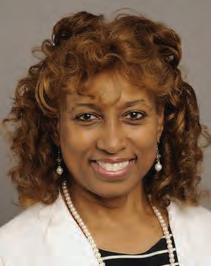
AN AWAKENING IS COMING TO AMERICAN RELIGION. YOU WON’T HEAR ABOUT IT FROM THE PULPIT
By Joshua Stanton, Benjamin Spratt


Among clergy and sociologists, film directors, and songwriters, it has become practically a matter of cliché that Americans are searching for wholehearted belonging and not finding their needs met — the phenomenon, in short, behind the phrase “spiritual but not religious.”
These Americans are setting out on an open-ended quest, on their own or with trusted friends, to find meaning. More than a third have changed their religion of record in search of what they could not find in their faith of origin. Others are finding their way to humanist communities where they study, reflect, and find fellowship in modes not dissimilar to those of churches, synagogues, mosques, and temples.
However, the failure in American religion is not a failure of faith but of institutions. It results from a growing mismatch between the needs of modern Americans and the religious organizations intended to serve them. Now, even as those institutions falter, new centers of spirituality and community are attracting those who have fallen away from their houses of worship.
These movements are based not on established doctrines, clergy hierarchies, or grandiose buildings but on new formulations of belief, identity, belonging, and leadership. They are often organized by marginalized people who have been left out of old structures of faith and who dare to ask big questions and demand more from their spiritual communities. Having long been underserved, they choose not to hide in the shadows but instead create brilliant new forms of religious community.
A century ago, clergy like us — two rabbis serving Reform Jewish communities in the heart of a major urban center — were in many ways indispensable. The leaders of the American Jewish community led an effort to build synagogues, community centers, and day schools. We convened major organizations, centralizing information and power to help waves of mostly Eastern European immigrants acculturate to American life.
Today, as we document in our forthcoming book, “Awakenings: American Jewish Transformations in Identity, Leadership, and Belonging,” the roles we inhabit belong to that bygone era. Jews no longer need such spaces to mediate between the American and Jewish parts of their identities. Rather than finding new purposes to unite American Jews, organizations like ours have become purposes unto themselves, draining resources and enthusiasm from individuals who remain remarkably proud of their identities.
Our communities may buck the trends of decline because of our remarkable lay leaders, because of an enduring sense of purpose, and because of the very spiritual and social infrastructure our forebears built. But our synagogues will not emerge from this awakening unchanged.
The decline of these legacy institutions does not portend a death spiral of assimilation for American Judaism so much as an overdue reckoning with our community’s changing needs. No longer a marginalized community of immigrants, we have not only acculturated ourselves but also are slowly coming to embrace a surprising number of converts and people inspired by Jewish ideas and rituals who have no intention to become permanent members of the community. After grieving the pain of change, we will come to see the bounty of a Jewish awakening that reshapes our people’s largest diaspora community.
As we shared our book’s hypothesis with colleagues from other traditions, we realized that the awakening is not confined to the Jewish community. White evangelical Christian communities are (in the words of one pastor) “in free fall,” while many mainline Protestant churches are emptying. Catholics, whose growth can be attributed in many areas to immigration, are hoping to sustain homegrown flocks by seeking new leadership roles for women. Black churches continue to thrive but search for avenues to share their wisdom and inspiration with people of other faiths and skin colors.
Meanwhile, many American Muslims feel deeply connected to faith but are “unmosqued” for lack of access to communities that empower women as equals or embrace the LGBTQ community. Hindus search for American expressions of a faith that grew out of South Asia. Seekers who dabble in multiple traditions befuddle many clergy but coalesce in increasingly holistic practice communities.
Over the next few weeks on Religion News Service, we will explore some voices of those studying, seeding, and leading the emergent awakening, both from within mainstay organizations and some of the mission-driven startups that have appeared on the religious landscape. While affirming that the status quo of religious institutions is unsustainable, w we will look at how these organizations are overcoming changes in demography, mindset, technology, and social organization. The future resides with lay leaders and houses of worship that support innovation, focus on empowerment rather than power, and seed (or become) their own successor organizations. It resides with people absent from our biggest pulpits because of gender, country of origin, mother tongue, or skin color. The future resides in clarity of purpose that can unite people and bring them together in hope, not in fear of damnation, judgment, or social ostracism. It resides in organizations that bring people together for a reason but keeps them there by fostering a sense of communal belonging.
As we have witnessed before in American history, out of the remnants of religion, a bright awakening rises. We join you in learning about what comes next.
M hl A M l f ld l
aw m o h la th in o ch m o le th e
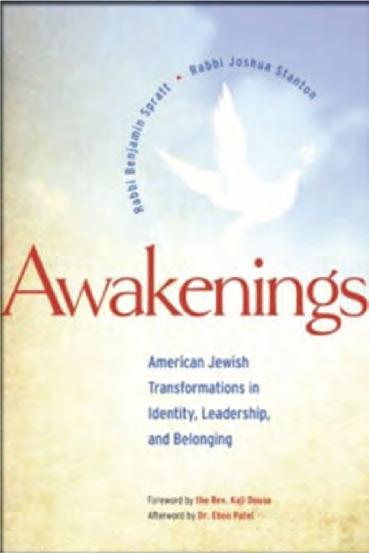

(Joshua Stanton is rabbi of East End Temple in Manhattan and a senior fellow at CLAL-The National Jewish Center for Learning and Leadership. Benjamin Spratt is senior rabbi at Congregation Rodeph Sholom in Manhattan. The views expressed in this commentary do not necessarily represent those of Religion News Service.)
By Pastor Seraphin Mutabazi & Olivier Pendo, 17th Episcopal District

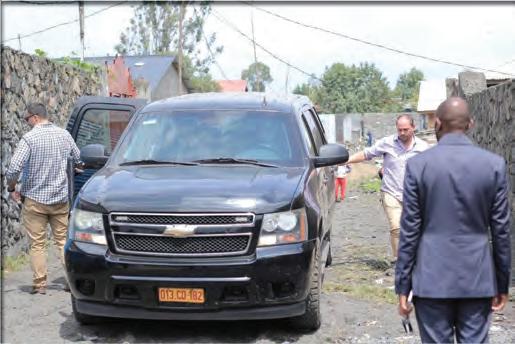
On Sunday, February 27, 2022, the Weaver School was honored and valued by the visit of the U.S. ambassador in the Democratic Republic of Congo, His Excellency Ambassador Michael Hammer. Before his visit, he had promised to come to the school during a Zoom meeting with Senator Van Hollen, the Reverend Weaver, Ambassador Hammer, Pastor Seraphin, and Olivier on Thursday, February 24, 2022 at 8:40 am Eastern Time. Then on February 27, he arrived to the school though he did not meet students, only teachers were present along with a provincial deputy, the coordinator of schools, and some church leaders. In his speech, he thanked teachers for their courage and commitment throughout the miserable conditions in which they are teaching. He then encouraged them to be resilient because greater things are yet to come. He had time to visit the classrooms, and he was surprised by the status and bad conditions of the classrooms and the benches despite the efforts of repairing them. In a video call, he thanked the Reverend Doctor Jonathan Weaver for the incredible work he is doing in the Eastern Congo. Ambassador Hammer’s arrival to the Weaver School will forever be historical in the history of the school.
PREPARATIONS OF THE AMBASSADOR’S ARRIVAL
On Friday, February 25, 2022 at 10:46 am local time, Mr. Olivier received a call from Mr. Patrick of U.S. Embassy Kinshasa (Eastern Congo Unit) announcing the sudden arrival of the ambassador to the Weaver School. In order to prepare for his arrival effectively, it was necessary to plan and suddenly do the best possible: a. Contacting Teachers
It was a day-off; the teachers were not at school. So, Olivier sent phone messages to school principals as well as some of the teachers to come to school on Saturday urgently. On their turn, every teacher who received the message forwarded it to their colleagues. It made the announcement reach almost all the teachers immediately. b. Brief Meeting with Teachers
On Saturday, one day before, a brief staff meeting was held to prepare for the arrival of the ambassador. During the meeting, teachers were instructed to appear smart, wear facemasks, and maintain physical distancing to avoid the spread of the COVID-19 pandemic. During the meeting, the Reverend Weaver had a video call with the teachers to tell them about the significance of the visit of the ambassador to the school. All the teachers agreed to work together as one person to prepare for the event successfully. Everyone invited was mobilized to ensure there was a warm welcome to the visitors. All the participants wore their masks, applied hand sanitizers, and had their temperature measured. Thank God, the school has thermometers offered by the Pan African Collective – USA.
AMBASSADOR HAMMER’S VISIT TO THE WEAVER SCHOOL – GOMA, D.R.C.
The Ambassador Hammer arrived at the Weaver School on Sunday, February 27, 2022 at 1:45 pm local time. He was accompanied by two more people and his driver.
UPON AMBASSADOR’S ARRIVAL
The event started with a short prayer by Dieudonne Mugongo, the coordinator of schools in the Mudja locality.
INTRODUCTION OF KEY PARTICIPANTS
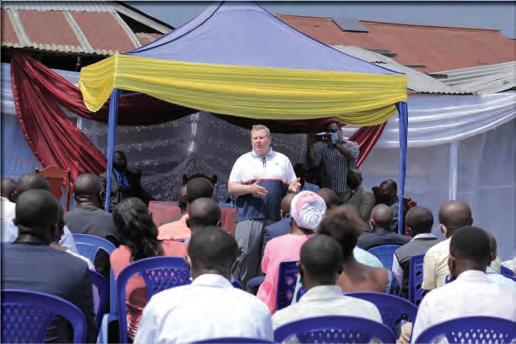
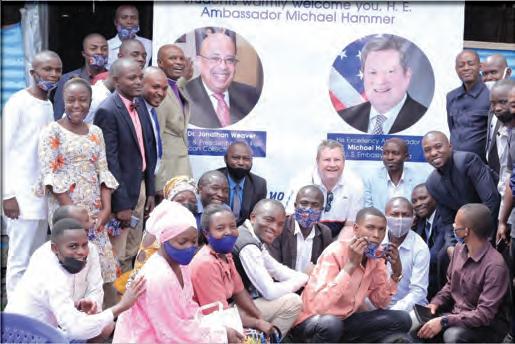

Ambassador Hammer – visiting classrooms (inside the Weaver School).
Mr. Olivier proceeded with the introduction of key people who were present at the event. k
Among the local key people who participated, there was the Reverend Dieudonne Mugongo who th is the Coordinator of schools in the Mudja Locality is where the Weaver School is located; the Reverend Pastor Seraphin Mutabazi w who is the legal representative of the African Methodist Episcopal Church – w Eastern Congo and co-founder of the Weaver School; Mr. Chadrack Basalela, E the principal of the Weaver Secondary School; Mr. Buka Buingo Lavie, the th principal of the Weaver Primary School; and the provincial deputy and other p important people were present. im
Mr. Olivier Pendo (teacher): Introducing key people present at the event. After introduction of key participants, the floor was given to the ambassador to talk to the teachers. In his speech, the ambassador congratulated the teachers for the tremendous job they are doing, providing quality education to the most fo vulnerable students in spite of the miserable working conditions. He expressed v his satisfaction with the courage and commitment of the teachers since the h beginning of the school. b
Ambassador Hammer promised to work hand in hand with Pastor Weaver to ensure the Weaver School is among the most famous schools in the Democratic Republic of the Congo. e
At the same time, Ambassador Hammer engaged in a phone conversation with the Reverend Weaver on WhatsApp video call. Ambassador Hammer congratulated Pastor Weaver for his efforts he has made so far. “I W am so proud of you, Pastor Weaver,” he said. He reiterated his full support to ensure the Weaver School students a study in the best conditions ever. ❏ ❏ ❏ Ambassador Hammer – congratulating and encouraging teachers for their tremendous job their doing at the Weaver School. A picture with teachers. Ambassador Hammer, Mr. Olivier & Pastor Weaver during a video call.
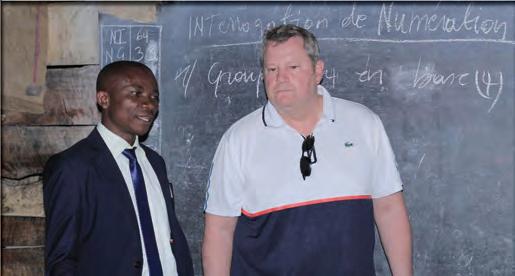

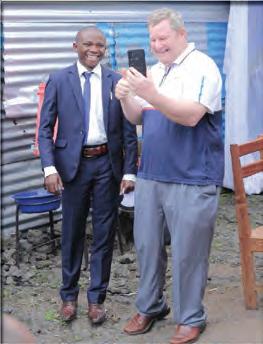
CONGRATULATORY LISTINGS APRIL 2022

*Purple font connotes Episcopal Family; Red font, General Officers; and Blue font, Connectional Officers.
*Bishop Frederick Calhoun James Celebrates His One Hundredth Birthday, April Seventh, Two Thousand Twenty-Two *Bishop Frederick Calhoun James the ninety-third elected and consecrated bishop of the African Methodist Episcopal Church; the oldest living bishop in Methodism in the USA, still lives holding “True to his Christian Social Action Legacy.”
Ecumenical theologian, advocate for fair and decent housing, proponent of civil rights, political leader, and public servant are only a few of the characteristics of Bishop Frederick Calhoun James, the ninety-third elected and consecrated bishop of the African Methodist Episcopal Church.
Bishop Frederick Calhoun James was born on April 7, 1922, in Prosperity, South Carolina, the son of Edward and Rosa Lee James. He graduated from Drayton Street High School, Newberry, South Carolina. He graduated from Bettis Junior College with an Associate of Arts Degree and earned his B.A. degree in History/English from Allen University (1943), and his Master of Divinity degree from the Howard University School of Religion (1947). He also studied at Union Theological Seminary in New York. He married Theressa Gregg on December 30, 1944.
As a champion for civil rights, the Rev. James became a community and state social and political action leader. In 1960, he was elected consultant/director of Social Action of the African Methodist Episcopal Church. In this position, he formed a close relationship with Dr. Martin Luther King, Jr. In 1963, he became president of the Effective Sumter Movement of Sumter, South Carolina, a historic chapter in civil rights. In 1967, as pastor of Mt. Pisgah AME Church, the Rev. James led the sponsorship of the first 221(d) Rent Supplement Housing Project in South Carolina. In 1969, he initiated the first 221(h) Home Ownership Project in the state. He was South Carolina’s first African American Congressional District member of the Department of Alcohol and Drug Abuse and the Department of Social Services. He was the first African American to serve on the Board of Directors at NBSC (National Bank of South Carolina), now SYNOVUS, the first African American member of the Greater Sumter Chamber of Commerce, and the first AME bishop elected from a South Carolina AME Church pulpit. From 1987 to 1992 he was a member of the Columbia Housing Authority and served as vice chair. He also served as vice president of the S. C. Christian Action Council.
In 1972, he was elected to the AME bishopric and was assigned as the presiding bishop of the AME Church in South Africa, Lesotho, Botswana, Swaziland, Namibia, and Mozambique. Headquartered in Cape Town, South Africa, he established schools, a publishing house, churches, and other institutions. Bishop James later was assigned bishop in Arkansas and Oklahoma (1976). He formed a lifelong friendship with then Attorney Bill Clinton. In 1984, he was assigned to the 7th Episcopal District, state of South Carolina. In each of these positions, he built housing projects, strengthened schools, and led two colleges to full accreditation: Shorter College, N. Little Rock, Arkansas in 1981 and Allen University, Columbia, South Carolina in 1992. In 1992, Bishop James was assigned ecumenical bishop and chaplaincy endorsement officer of the African Methodist Episcopal Church International. In 1993, he was given major fiscal and reconciliation duties as bishop of the Second Episcopal District (Maryland, Washington, D.C., Virginia, and North Carolina) of the African Methodist Episcopal Church and the district was stabilized in many ways.
In 1994, he was selected by President Clinton as an official member of the delegation to attend the inauguration of South African President Nelson Mandela, and in 1998 he was again chosen to accompany President and Mrs. Clinton on an official visit to South Africa.
Bishop James is a former member of the White House Advisory Board on Historical Black Colleges and Universities, the U.S. State Department’s Advisory Board on Religious Freedom, and national vice president of the Interfaith Alliance. A life member of the NAACP, Alpha Phi Alpha Fraternity, and a 33-degree Mason, he was inducted into the South Carolina Black Hall of Fame (1991) and the Columbia Housing Authority Wall of Fame (1994). In January of 2003, Bishop James was awarded the state’s highest honor, The Order of the Palmetto, for his significant contributions to South Carolina.
He retired from active duty in 1996 and he and Dr. Theressa Gregg James, Episcopal supervisor, returned to live at their home in Columbia, South Carolina.
Episcopal supervisor retired, Dr. Theressa Gregg James, transitioned Monday, January 25, 2021, in Columbia, South Carolina. Dr. Theressa Gregg James and Bishop James had celebrated seventy-six years of wedded bliss on December 30, 2020.
Congratulatory messages can be emailed to: BishopfredCJames@aol.com.
*Marvin Frank Curtis Zanders, Juris Doctorate Candidate The Dean, Faculty, and Staff of the Florida Agricultural and Mechanical University College of Law announce the hooding of Marvin Frank Curtis Zanders, a Juris Doctorate Candidate, at the annual Hooding Ceremony on Saturday, May Seventh, Two Thousand and Twenty-Two at 10 o’clock in the morning; Hyatt Grand Cypress, One Grand Cypress Boulevard, Orlando, Florida.
The journey continues……..
Upon completion of the Florida Bar, Zanders will relocate to New York to acquire a Master of Law (LLM) degree in Taxation from the prestigious New York University.
Marvin Frank Curtis Zanders is the son of Bishop Marvin Clyde Zanders II, the 140th elected and consecrated bishop of the African Methodist Episcopal Church and Mrs. Winifred Houston Zanders, presiding prelate and supervisor of the Sixteenth Episcopal District; Guyana/Suriname, Virgin Islands, European, Dominican Republic, Haiti, Jamaica, and Windward Islands.
Ways to congratulate the graduate:
Cash App – $SYSLFRANK
Zelle – marvin.zanders@yahoo.com
By Mail: 4003 Eagle Landing Parkway
Orange Park, Florida 32065
Thank you for your love and support!
Congratulatory messages can be emailed to: zpas@bellsouth.net (Bishop Marvin C. Zanders II and Supervisor Winifred H. Zanders).
On behalf of Publications Commission chair Bishop David R. Daniels, Jr., president/publisher of the AMEC Publishing House (Sunday School Union) the Rev. Dr. Roderick D. Belin, and editor of The Christian Recorder Mr. John Thomas III, we celebrate and applaud your achievements.
“For surely I know the plans I have for you, says the Lord, plans for your welfare and not for harm, to give you a future with hope.” Jeremiah 29:11 (NRSV)
To share or receive information about Connectional clergy family bereavements and congratulations, please contact the AME Church Clergy Family Information Center. Mrs. Ora L. Easley, administrator • 5981 Hitching Post Lane • Nashville, TN 37211 • 615.833.6936 (CFIC Office) • amecfic.org • facebook.com/AMECFIC.



